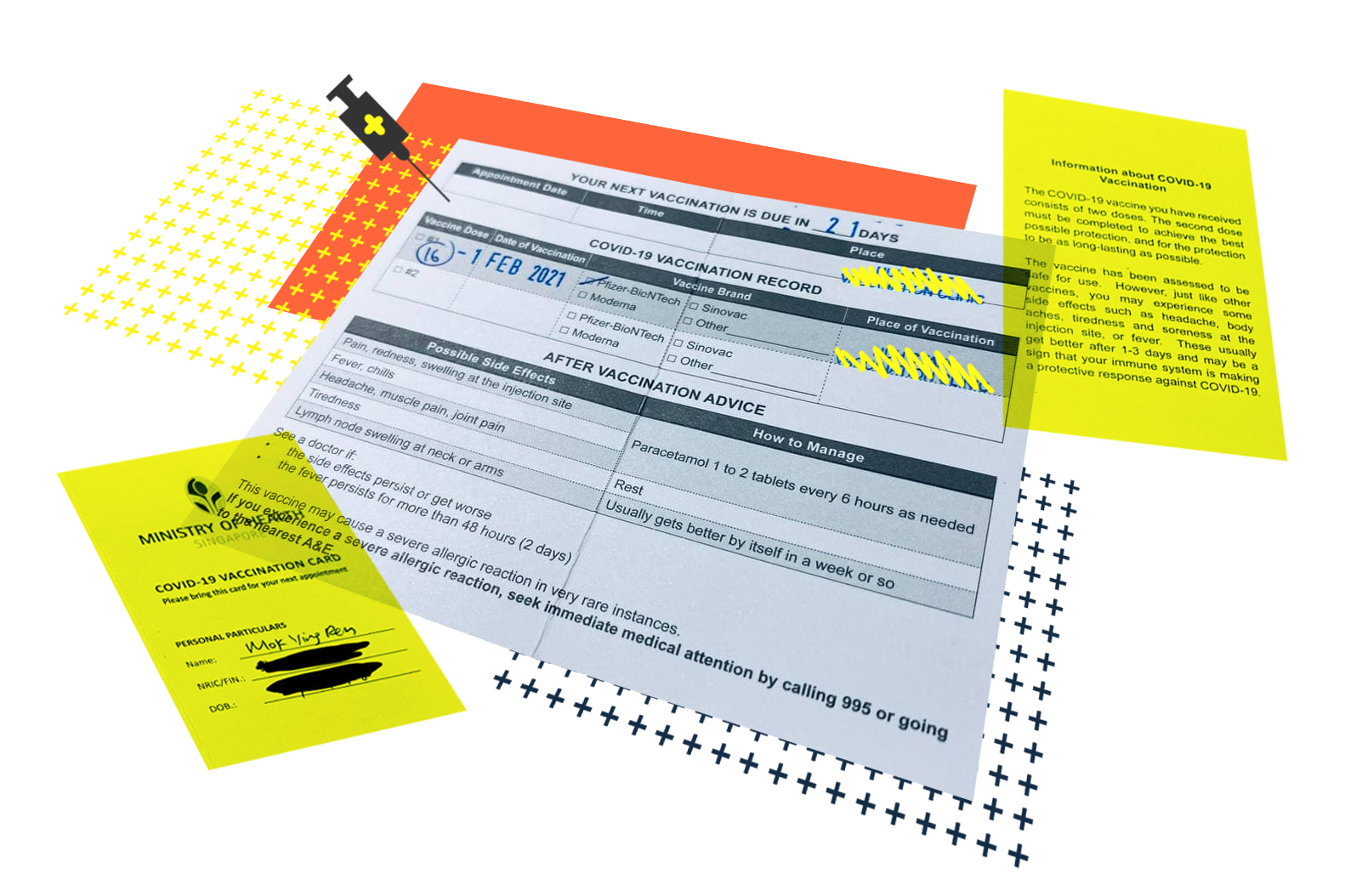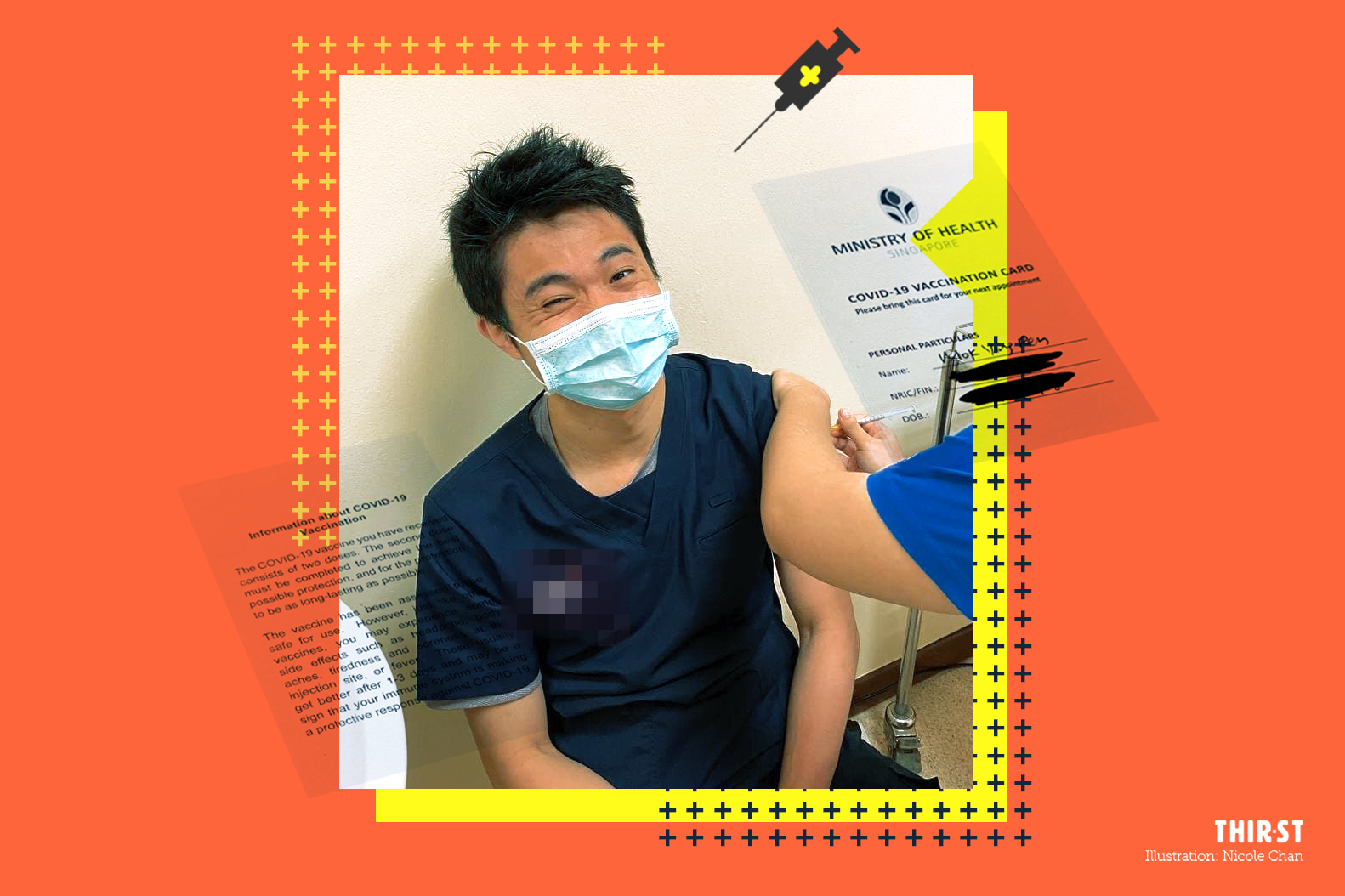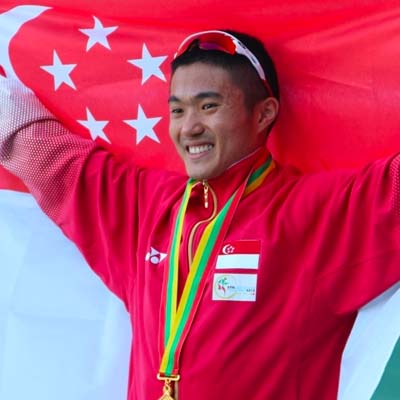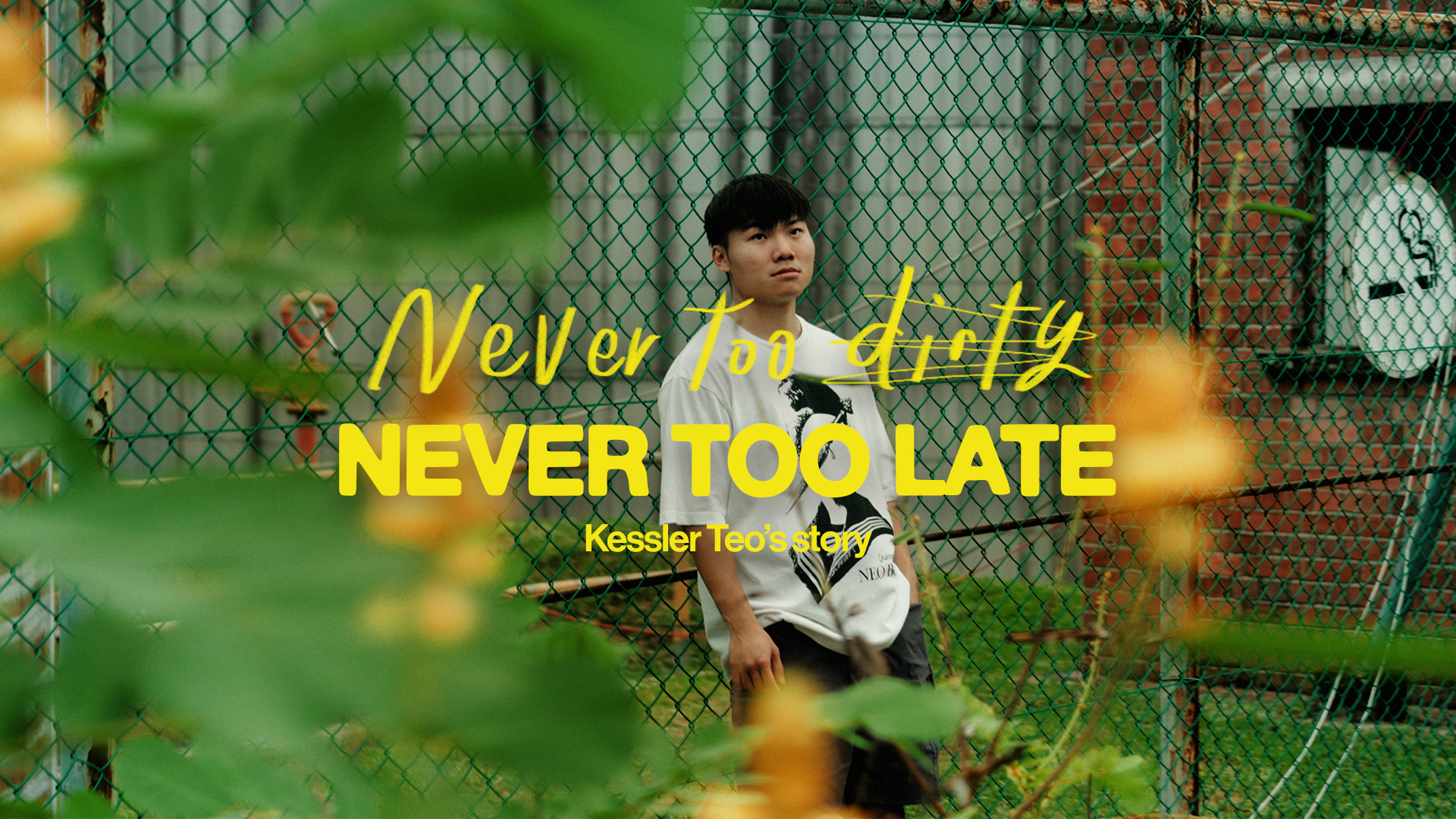It was my turn to receive my COVID-19 vaccine this week. Despite it being optional for healthcare workers, it was something I wanted to do.
The entire process took me less than 35 minutes as it was well planned by my hospital. After a smooth check-in and signing of forms, a nurse kindly delivered the vaccine using a really small needle. The injection made my shoulder slightly sore, but the sensation was bearable.
Once that was done, I was ushered to the observation area where I had to monitor for any side effects. We were also given a vaccination card to remind us of our second dose.
As I was waiting in the observation bay for 30 minutes, I pondered the significance of my decision.
THE FEAR OF THE UNKNOWN
If one is to be honest, one can never know the outcome of taking a vaccine.
There have been severe allergic reactions reported in a handful of Singaporeans so far. The Ministry of Health also does not attempt to hide this fact, openly declaring that in view of the short-term studies, “very rare serious adverse events” may only be picked up in the future.
It is because of such unknown side effects that the vaccination is not recommended for pregnant women and the immunocompromised, among other population groups.
It would be presumptuous then, to think that we are immune to these complications. Indeed the reality is that every medical intervention comes with its risk, and the COVID-19 vaccine is no different.

I know some who have chosen to decline the vaccine because they are young, they are not travelling soon, or they would rather not take the risk.
If widespread, such reasons affect a vaccine’s effectiveness in the community. That is because a high level of population coverage provides protection for the majority of our population.
There is no doubt that I share some of their concerns. However, I believe there are reasons to hope.
WHAT GIVES ME CONFIDENCE
We often rely on our government to do their “homework” – through expert panels, parliamentary debates and population surveys.
These methodologies are not foolproof. But because of our limited time and knowledge, we truly have to rely on the information given to us to some extent.
For a vaccine to be confidently rolled out with our state leaders leading by example, a certain safety criteria must be met.
In addition, Singapore’s excellent track record in managing the outbreak gives one confidence that the vaccination programme is in our country’s best interest.
My decision to opt for the vaccine despite the uncertainties is thus not only rooted in calculated faith, but also belief that all governing authorities have been instituted by God Himself (Romans 13:1)!
MY SOURCE OF ALL HOPE
Finally, I decided to take this vaccine not because I am sure I will escape complications or because of my complete faith in the government.
The most fundamental reason is that I trust in God and His sovereignty over all things.
At a time when he was suffering in prison, Paul wrote in Philippians 4:6 that we do not need to be anxious about anything.
The ultimate reason why we need not be fearful is not because nothing will happen to us, but because the Lord is in control of every situation!
Paul exhorts us that in everything, to let it be known to God by prayer and supplication with thanksgiving.
With that, he also promises that the peace of God, which surpasses all understanding, will guard our hearts and minds in Christ Jesus (Philippians 4:7).
My final and definitive layer of hope therefore comes from Christ.
For in Romans 8:28, Paul affirms that “all things work together for good” for those who love God.
This means that even if we suffer any complications from the vaccine, God will be able to use that seemingly bad situation for good.
Even adverse effects from the vaccine – with the worse being physical death – can never separate us from the love of God in Christ Jesus (Romans 8:39).
These are promises that can truly fill our hearts with joy and assurance.
I thank God for this vaccination. For the scientists who created it, the government for rolling this out, the healthcare professionals for arranging it, and the fellow Singaporeans who choose to take up the vaccine.
Indeed as we make this decision to place the community above ourselves, we can stand firm in the promises of God.
Mok Ying Ren is a medical doctor in a public healthcare institution. The views he expresses here are of his own and don’t necessarily represent that of his employer.
- Romans 8:28 is a verse that gets quoted a lot. What does it mean that “all things work together for good” for those who love Him?
- What does it mean to have hope in Christ?
- Is there an area of your life that you need to trust in God for?










